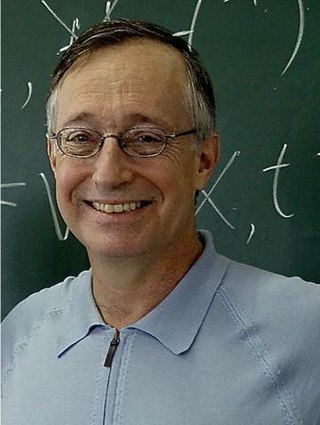The economic calculation problem is a criticism of using economic planning as a substitute for market-based allocation of the factors of production. It was first proposed by Ludwig von Mises in his 1920 article "Economic Calculation in the Socialist Commonwealth" and later expanded upon by Friedrich Hayek.

A stock market, equity market, or share market is the aggregation of buyers and sellers of stocks, which represent ownership claims on businesses; these may include securities listed on a public stock exchange as well as stock that is only traded privately, such as shares of private companies that are sold to investors through equity crowdfunding platforms. Investments are usually made with an investment strategy in mind.

In finance, speculation is the purchase of an asset with the hope that it will become more valuable shortly. It can also refer to short sales in which the speculator hopes for a decline in value.
This aims to be a complete article list of economics topics:
In finance, technical analysis is an analysis methodology for analysing and forecasting the direction of prices through the study of past market data, primarily price and volume. As a type of active management, it stands in contradiction to much of modern portfolio theory. The efficacy of technical analysis is disputed by the efficient-market hypothesis, which states that stock market prices are essentially unpredictable, and research on whether technical analysis offers any benefit has produced mixed results. It is distinguished from fundamental analysis, which considers a company's financial statements, health, and the overall state of the market and economy.

The efficient-market hypothesis (EMH) is a hypothesis in financial economics that states that asset prices reflect all available information. A direct implication is that it is impossible to "beat the market" consistently on a risk-adjusted basis since market prices should only react to new information.

Day trading is a form of speculation in securities in which a trader buys and sells a financial instrument within the same trading day, so that all positions are closed before the market closes for the trading day to avoid unmanageable risks and negative price gaps between one day's close and the next day's price at the open. Traders who trade in this capacity are generally classified as speculators. Day trading contrasts with the long-term trades underlying buy-and-hold and value investing strategies. Day trading may require fast trade execution, sometimes as fast as milli-seconds in scalping, therefore direct-access day trading software is often needed.
A betting exchange is a marketplace for customers to bet on the outcome of discrete events. Betting exchanges offer the same opportunities to bet as a bookmaker with a few differences. Gamblers can buy and sell the outcome, and they can trade in real-time throughout the event, either to cut their losses or lock in profit. Bookmaker operators generate revenue by offering less efficient odds. Betting exchanges normally generate revenue by charging a small commission on winning bets.
In philosophy and the social sciences, social software is an interdisciplinary research program that borrows mathematical tools and techniques from game theory and computer science in order to analyze and design social procedures. The goals of research in this field are modeling social situations, developing theories of correctness, and designing social procedures.

Paul Robert Milgrom is an American economist. He is the Shirley and Leonard Ely Professor of Humanities and Sciences at the Stanford University School of Humanities and Sciences, a position he has held since 1987. He is a professor in the Stanford School of Engineering as well and a Senior Fellow at the Stanford Institute for Economic Research. Milgrom is an expert in game theory, specifically auction theory and pricing strategies. He is the winner of the 2020 Nobel Memorial Prize in Economic Sciences, together with Robert B. Wilson, "for improvements to auction theory and inventions of new auction formats".
Nancy Laura Stokey has been the Frederick Henry Prince Distinguished Service Professor of Economics at the University of Chicago since 1990 and focuses particularly on mathematical economics while recently conducting research about Growth Theory, economic dynamics, and fiscal/monetary policy. She earned her BA in economics from the University of Pennsylvania in 1972 and her PhD from Harvard University in 1978, under the direction of thesis advisor Kenneth Arrow. She is a Fellow of the Econometric Society, the American Academy of Arts and Sciences and the National Academy of Sciences. She previously served as a co editor of Econometrica and was a member of the Expert Panel of the Copenhagen Consensus. She received her Honorary Doctor of Laws (L.L.D) in 2012 from the University of Western Ontario.
An electronic communication network (ECN) is a type of computerized forum or network that facilitates the trading of financial products outside traditional stock exchanges. An ECN is generally an electronic system that widely disseminates orders entered by market makers to third parties and permits the orders to be executed against in whole or in part. The primary products that are traded on ECNs are stocks and currencies. ECNs are generally passive computer-driven networks that internally match limit orders and charge a very small per share transaction fee.
In economics, a market is a composition of systems, institutions, procedures, social relations or infrastructures whereby parties engage in exchange. While parties may exchange goods and services by barter, most markets rely on sellers offering their goods or services to buyers in exchange for money. It can be said that a market is the process by which the prices of goods and services are established. Markets facilitate trade and enable the distribution and allocation of resources in a society. Markets allow any tradeable item to be evaluated and priced. A market emerges more or less spontaneously or may be constructed deliberately by human interaction in order to enable the exchange of rights of services and goods. Markets generally supplant gift economies and are often held in place through rules and customs, such as a booth fee, competitive pricing, and source of goods for sale.

A double auction is a process of buying and selling goods with multiple sellers and multiple buyers. Potential buyers submit their bids and potential sellers submit their ask prices to the market institution, and then the market institution chooses some price p that clears the market: all the sellers who asked less than p sell and all buyers who bid more than p buy at this price p. Buyers and sellers that bid or ask for exactly p are also included. A common example of a double auction is stock exchange.

Auction theory is an applied branch of economics which deals with how bidders act in auction markets and researches how the features of auction markets incentivise predictable outcomes. Auction theory is a tool used to inform the design of real-world auctions. Sellers use auction theory to raise higher revenues while allowing buyers to procure at a lower cost. The conference of the price between the buyer and seller is an economic equilibrium. Auction theorists design rules for auctions to address issues which can lead to market failure. The design of these rulesets encourages optimal bidding strategies among a variety of informational settings. The 2020 Nobel Prize for Economics was awarded to Paul R. Milgrom and Robert B. Wilson “for improvements to auction theory and inventions of new auction formats.”

Stocks consist of all the shares by which ownership of a corporation or company is divided. A single share of the stock means fractional ownership of the corporation in proportion to the total number of shares. This typically entitles the shareholder (stockholder) to that fraction of the company's earnings, proceeds from liquidation of assets, or voting power, often dividing these up in proportion to the amount of money each stockholder has invested. Not all stock is necessarily equal, as certain classes of stock may be issued, for example, without voting rights, with enhanced voting rights, or with a certain priority to receive profits or liquidation proceeds before or after other classes of shareholders.

Market design is a practical methodology for creation of markets of certain properties, which is partially based on mechanism design. In some markets, prices may be used to induce the desired outcomes — these markets are the study of auction theory. In other markets, prices may not be used — these markets are the study of matching theory.
This glossary of economics is a list of definitions of terms and concepts used in economics, its sub-disciplines, and related fields.
The Nancy L. Schwartz Memorial Lecture is a series of public lectures held every year by the Kellogg Department of Managerial Economics and Decision Sciences of Northwestern University.

Peter Cramton is an American economist and academic. He is Professor of Economics at the University of Maryland, Emeritus since 2018, and holds the Market Design Chair in Economics at the University of Cologne.







